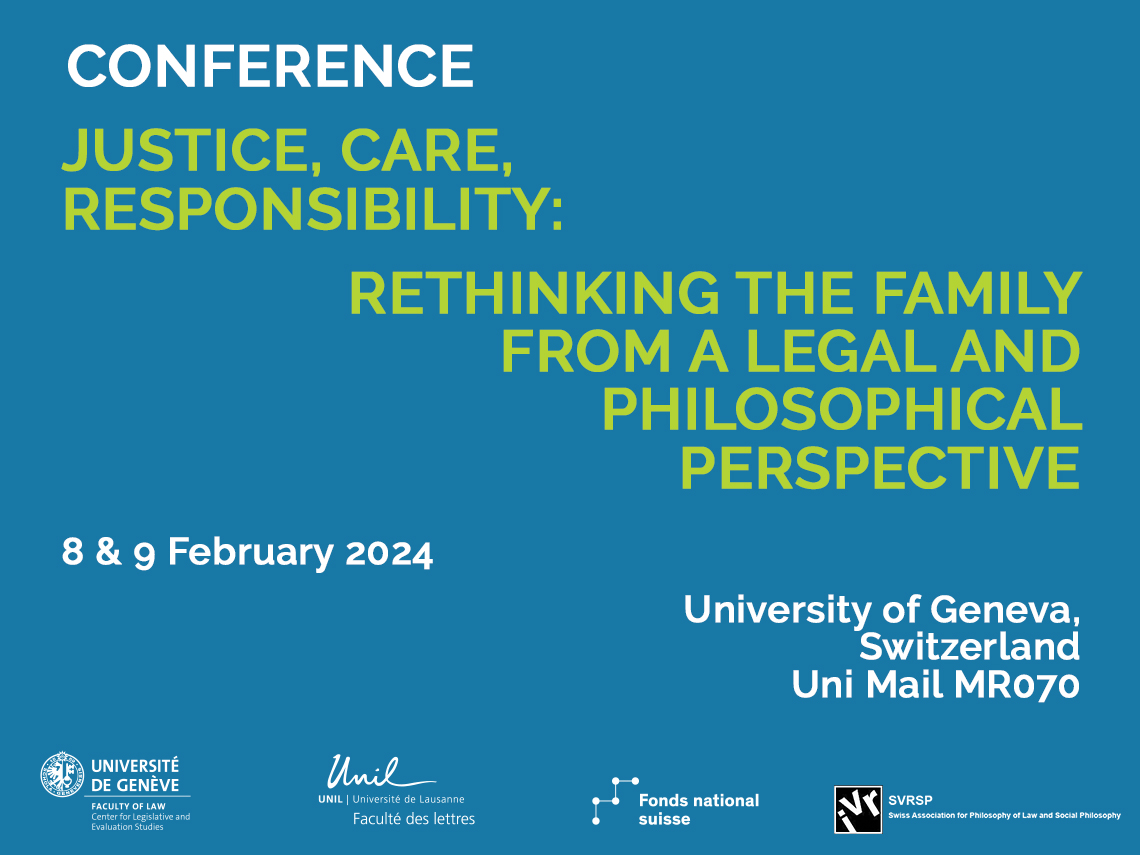Justice, Care, Responsibility: Rethinking the Family from a Legal and Philosophical Perspective

Conference organized by Prof. Michelle Cottier (University of Geneva), Prof. Simone Zurbuchen (University of Lausanne) and Prof. Anne Kühler (University of Vienna) on behalf of the Swiss Association of Philosophy of Law and Social Philosophy in Collaboration with the Centre for Legislative Studies (CETEL) at the University of Geneva
Outline
In Western societies, barely any social institution has been changing so rapidly as the family. Today’s diversity of family models challenges traditional accounts of care and responsibility within the family, leaving space to reflect on the legal and ethical parameters that govern our notions of the various relations within the family. The Conference aims at discussing the family and its future from an interdisciplinary standpoint, bringing together philosophy, sociology and law, and in a global perspective.
To begin with: what is a “family” anyway and what is its future? How should it be regulated by law? What are the alternatives to current family structures and how could such alternatives be regulated by the law? For answering these questions, it seems fruitful to look back in order to highlight some of the major shortcomings and injustices that lead to the transformation of the family in the 20th century. Equally important is a thorough philosophical reflection on the variety of personal relationships and on different concepts of relationships within the family. In this context, it seems especially important to reflect on current discussions about marriage as the touchstone of the bourgeois family, and its connection to parenthood, discussions that challenge yet enrich and extend traditional concepts of marriage, leading to legal innovation and change. Those reflections inevitably raise fundamental questions of justice: what do we owe each other within a family? Which legal and ethical obligations are at stake in (family) relationships? What does justice in personal relationships mean at all, and across generations? Which normative ideals should guide our ethical and legal assessment of affiliation to a family? Those questions are especially salient in regard to the notion of care that entails basic assumptions about individual and collective responsibility, and the need of compensation – arguably a societal task. Those reflections get even more challenging with the globalization of the family, and new questions arise as family relationships transcend borders: How can the law account for the protection of family life and personal relationships across borders? Do we need to rethink the family even more profoundly in light of our responsibility towards future generations and the ever more important problem of population growth?
8 janv. 2024